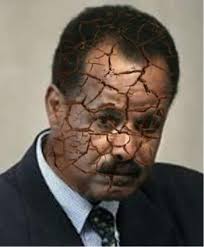
NAIROBI July 28, 2011- Eritrea was behind a plot to attack an African Union summit in Ethiopia in January and is bankrolling al Qaeda-linked Somali rebels through its embassy in Kenya, according to a U.N. report.
A U.N. Monitoring Group report on Somalia and Eritrea said the Red Sea state's intelligence personnel were active in Uganda, South Sudan, Kenya and Somalia, and that the country's actions posed a threat to security and peace in the region.
"Whereas Eritrean support to foreign armed opposition groups has in the past been limited to conventional military operations, the plot to disrupt the African Union summit in Addis Ababa in January 2011, which envisaged mass casualty attacks against civilian targets and the strategic use of explosives to create a climate of fear, represents a qualitative shift in Eritrean tactics," the report obtained by Reuters said.
The plan was to attack the AU headquarters with a car bomb as African leaders took breaks, to blow up Africa's largest market to "kill many people" and attack the area between the Prime Minister's office and the Sheraton Hotel -- where most heads of state stay during AU summits.
The U.N. said while past Eritrean support for rebel groups in both Somalia and Ethiopia had to be seen in the context of an unresolved border dispute with Addis Ababa, the new approach was a threat to the whole of the Horn and east Africa.
"The fact that the same Eritrean officers responsible for the planning and direction of this operation are also involved, both in supervisory and operational roles, in external operations in Djibouti, Kenya, Uganda, Somalia and Sudan implies an enhanced level of threat to the region as a whole."
Asmara has repeatedly denied any involvement in funding rebel groups in the region. In June, it rejected claims it had anything to do with the Addis Ababa bomb plot as "nonsensical remarks" with no legal basis.
No official comment was immediately available from the Eritrea government on the U.N. report.
The U.N. has slapped an arms embargo on the Red Sea state, as well as a travel ban and an assets freeze on Eritrean political and military leaders who it says are violating an arms embargo on Somalia.
"MAKE ADDIS ABABA LIKE BAGHDAD"
Ethiopian intelligence officials uncovered the plot to set off multiple bombs in Addis Ababa at the AU summit, an event typically attended by more than 30 African leaders, in January this year.
The U.N. report said all but one of the people arrested received all their training and orders directly from Eritrean officers. The other detainee was also in regular contact with an Ethiopian rebel group, the Oromo Liberation Front (OLF).
"Although ostensibly an OLF operation, it was conceived, planned, supported and directed by the external operations directorate of the Government of Eritrea, under the leadership of General Te'ame," the report said.
The equipment seized included C4 plastic explosives in food sacks, gas cylinders, detonators and a sniper rifle.
General Te'ame told one of the plotters that the plan was to make "Addis Ababa like Baghdad," according to the report.
However, in an interview with U.N. investigators, one of the men arrested, Omar Idriss Mohamed, said the aim was not to kill African leaders but to show them that Ethiopia was not safe.
"By so doing, some people may start to listen to what Eritrea is saying about Ethiopia. Some Arab States will be sympathetic to this view," he was quoted as saying.
According to the U.N. report, Omar is an OLF member who was approached by the Eritrean security services though Colonel Gemachew. Omar, who visited Eritrea in 2009 and 2010, became the Addis team leader for the plot.
The U.N. report included a letter from Romania confirming a sniper rifle found in the possession of one of the bomb plotters had been sold to Eritrea in 2004.
The report included slips showing payments to the plotters in Addis Ababa through money transfers. The plotters told the U.N. that an Eritrean colonel had arranged for the transfers via intermediaries in Sudan and Kenya.
Ethiopia routinely accuses Asmara of supporting rebel groups. In a shift of policy, Prime Minister Meles Zenawi declared in April it would support Eritrean guerrillas fighting to overthrow President Isaias Afewerki.
The report also included copies of payments slips from Eritrean officials in Kenya's capital Nairobi to known members of Somali rebel group al Shabaab. It said the payments were to the tune of $80,000 a month.
"The Monitoring Group has obtained documentary evidence of Eritrean payments to a number of individuals with links to al Shabaab," the report said.
"The documents obtained were received directly from the embassy of Eritrea in Nairobi, including payment vouchers marked 'State of Eritrea'," the report said.
"The embassy of Eritrea in Nairobi continues to maintain and exploit a wide network of Somali contacts, intelligence assets and agents of influence in Kenya." (Reuters)































